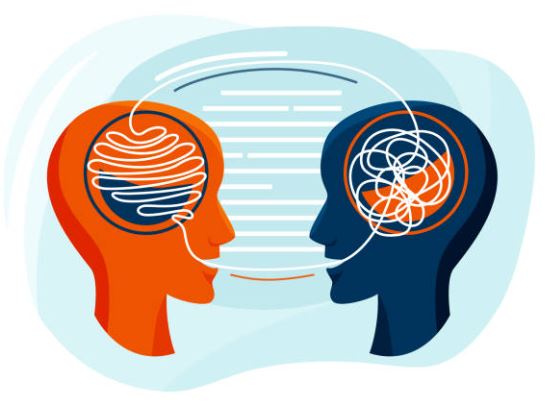Harold Robert Meyer and The ADD Resource Center 01/17/2025
Executive Summary: This analysis examines how individuals process positive and negative information, with particular attention to differences between neurotypical individuals and those with Attention Deficit Hyperactivity Disorder (ADHD). Understanding these distinctions is crucial for effective communication, feedback delivery, and support strategies across various professional and personal contexts.
General Information Processing Patterns: The human brain demonstrates a consistent negativity bias, where negative information typically demands more cognitive resources and generates stronger responses than positive information of equal intensity. This manifests through accelerated response times to negative stimuli, deeper cognitive processing of negative information, and longer-lasting impacts from negative experiences. Research indicates that approximately five positive experiences are necessary to counterbalance one negative experience in terms of psychological impact.
ADHD-Specific Considerations: Individuals with ADHD exhibit distinct patterns in processing both positive and negative information. Their unique neurological makeup influences their response mechanisms in several key ways:
Emotional Regulation: People with ADHD often experience more intense emotional reactions to both positive and negative stimuli, a phenomenon known as emotional dysregulation. This can result in heightened sensitivity to negative feedback and more pronounced emotional responses to both positive and negative information.
Processing Speed Variations: While neurotypical individuals typically process negative information more quickly than positive, those with ADHD may experience irregular processing patterns due to differences in executive functioning. This can lead to delayed recognition of negative consequences or inconsistent response times to both positive and negative stimuli.
Memory and Learning Impact: The ADHD brain’s unique dopamine system affects how experiences are encoded into memory. Positive reinforcement may need to be more immediate and frequent to achieve the same impact as in neurotypical individuals, while negative experiences might have particularly pronounced effects due to challenges with emotional regulation.
Practical Implications: These differences necessitate tailored approaches in various settings:
Professional Environment: Feedback delivery systems may need adjustment for ADHD employees, with increased emphasis on immediate positive reinforcement and carefully structured constructive criticism.
Educational Settings: Learning strategies should account for these processing differences, potentially incorporating more frequent positive feedback intervals for ADHD students while maintaining clear boundaries and consequences.
Personal Relationships: Understanding these processing differences can improve communication and support strategies in personal relationships, helping both parties navigate emotional responses more effectively.
© 2025 The ADD Resource Center. All rights reserved. 01/17/2025

Living with ADHD can be challenging, but there are many evidence-based interventions that can make a real difference in your daily life. I encourage you to explore options like cognitive behavioral therapy, medication, organizational strategies, and lifestyle modifications – working with healthcare professionals to find the right combination for your unique needs
—–
Your path to enhanced understanding and support begins here. At the ADD Resource Center, we’ve built a vibrant community of learners, professionals, and advocates dedicated to promoting positive change through evidence-based approaches and compassionate support.
Our Comprehensive Services
We provide personalized guidance for individuals, families, and organizations through integrated support systems that address your unique needs. Our expert team delivers targeted behavioral intervention strategies, while offering specialized assistance to healthcare providers, educators, and industry professionals.
Evidence-Based Resources at Your Fingertips
Access our carefully curated collection of informative articles, attend transformative workshops and seminars, and engage with our advocacy initiatives designed to promote understanding and reduce stigma. Our resources are continuously updated to reflect the latest research and best practices in the field.
Take the First Step Today
Join our growing community and discover the difference that expert guidance and support can make in your journey.
Mailing List
Contact Us:
The ADD Resource Center
Email: info@addrc.org
Phone: +1 646.205.8080
Harold Robert Meyer and The ADD Resource Center


